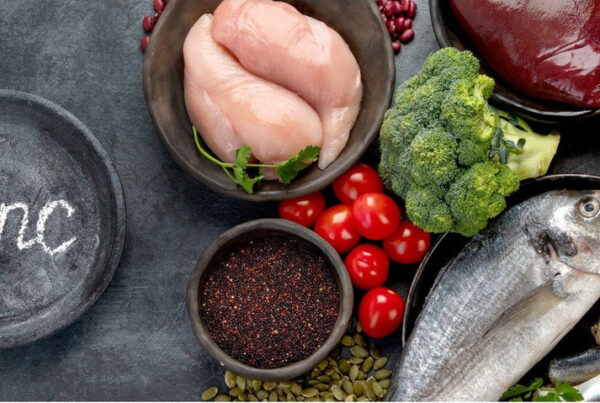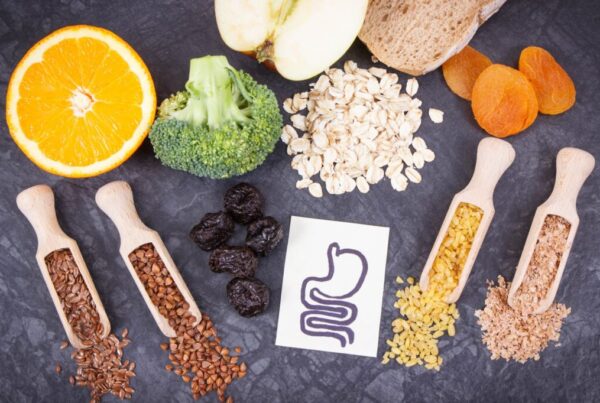Broccoli is a winter-specific vegetable and is generally unavailable in the summer. However, it grows well in a temperature ranging between 18°C to 23°C.
Eating in season is a breeze in the spring and summer, but it can prove to be challenging when cold weather sets in.
However, some vegetables can survive the cold, even under a blanket of snow. These are known as winter vegetables, due to their ability to withstand cold, harsh weather.
These cold-hardy varieties can withstand frosty temperatures due to the higher amount of sugar that they contain.
The sugar found in the water of winter vegetables causes them to freeze at a lower point, which allows them to survive in cold weather.
Additionally, this process results in cold-hardy vegetables tasting sweeter in the cooler months, making winter the optimal time for harvest.
It’s no secret that vegetables — which are loaded with fiber, vitamins, minerals, and antioxidants — are a must-have in a healthy diet.
They’re also filling, flavorful, and perfect for a variety of dishes, such as salads, soups, smoothies, and sandwiches.
Although all vegetables are healthy, several stand out for their supply of nutrients and powerful health benefits.
Broccoli is an assortment of edible flowers. These flowers (heads) spread out from a thick edible stalk and resemble a tree structure. They have dark green florets with light green stalks. However, you should avoid any broccoli with a yellowish discoloration while buying.
It is a source of essential nutrients vitamin A, C & riboflavin. It is also high in iron and calcium.
It is also very low in calories and rich in dietary fibres and antioxidants. Therefore, adding broccoli to your daily diet may help prevent various ailments.
It is a highly nutritious vegetable, low in carbs and has many essential vitamins, minerals, electrolytes and phytonutrients.
Health benefits of Broccoli
It is anti-diabetic and a powerhouse of antioxidants and essential nutrients.
It is a rich source of fiber and contains anti-diabetic activity. As a result, it promotes insulin sensitivity and aids in weight loss. Insulin resistance is when the body’s insulin does not absorb glucose. It is significant for weight gain. It reduces insulin resistance and aids weight loss.
Moreover, broccoli has various phytochemicals, known as bioactive compounds. These are effective in weight management.
Gastric infections with Helicobacter pylori (bacteria) are common. These infections result in an alarming risk of gastric cancer.
It is a rich source of glucoraphanin. It converts into bioactive anti-cancer compounds like sulforaphane glucosinolate. These active compounds are bacteriostatic and act as antitumor agents. Thus, broccoli is a dietary form of protection against stomach ulcers and induced tumours.
It has excellent anti-cancer properties. It is one of the most potent anti-carcinogenic vegetables due to its uncountable bioactive compounds. The anti-cancer compounds present in broccoli are:
- Glucosinolates (broken down into compounds like indoles, nitriles, thiocyanates and isothiocyanates)
- Diindolylmethane
- Selenium
- Indole-3-Carbinol
- Sulforaphane, a derivative of glucoraphanin
The biologically active elements curb the bladder, breast, liver, lung, prostate, renal, crown-gall, oral, colon, and skin cancers. They safeguard cells from DNA damage.
Broccoli contains anti-inflammatory agents. Inflammation may result from the circulation of excess Plasma C reactive proteins in the body.
One small study found that broccoli sprouts decreased levels of several markers of inflammation, which have been linked to chronic conditions such as heart disease.
Just 1 cup (91 grams) of raw broccoli provides 77% of the DV for vitamin K, 90% of the DV for vitamin C, and a good amount of folate, manganese, and potassium.
What’s more, a recent study in 960 people noted that eating one serving per day of green vegetables rich in kaempferol and other antioxidants may slow age-related mental decline.




